Before we begin
In every field, there are people who shape the work quietly—long before it's popular, funded, or easy. This piece is for them.
Some are no longer with us. Others are still here, working with conviction and clarity. All have shaped the way we understand and advance ageing, health, and justice.
You may not know every name. But I hope you’ll recognize the spirit they carried—and perhaps think of a “giant” in your own orbit.
I’ve had the immense privilege of working alongside each person mentioned here, and the joy of calling some friends. If someone comes to mind as you read, honor them. Say their name. Call them. Share their story.
Let’s not wait for eulogies.
***
Across disciplines, some people leave a mark—quietly or boldly, through institutions or relationships. In ageing, those marks often run deeper. They’re not just intellectual or strategic; they’re moral. They represent a kind of stewardship. A long holding of values and vision. An insistence that older people’s lives matter—not abstractly, but concretely, in budgets and courtrooms, in research agendas and hospital beds, in the way we build systems and train minds and speak truth to power.
Over the course of my career, I’ve had the extraordinary privilege of working alongside some of the people who built this field. I’ve seen them challenge assumptions, create institutions, and leave behind frameworks that many now take for granted. I’ve learned from their rigor—but even more from their conviction, especially in moments when they held the line. I’ve learned that failure is part of the work—repeated, sometimes disheartening—but it doesn’t dampen the spirit. It strengthens it. I’ve also learned that not everyone will love you for doing this work—and that’s okay. What matters is working with integrity and staying the course with others who believe in the same goal.
Some of these giants are no longer with us—people like Helen Hamlin, Baroness Sally Greengross, Erika Winkler, Jack Watters, Islene Araujo de Carvalho, Enrique Vega Garcia, Jan Hively, Chris Roles and Konrad Jamrozik.
Others continue to lead—with clarity, courage, and deep commitment to their work - Jean-Pierre Michel, Bjarne Hastrup, Grace Chan, John Beard, Stefania Maggi, Luis Miguel Robledo, Gloria Gutman, Ruth Shean, Alexandre Kalache, Graeme Prior, Silvia Perel-Levin, Yitzhak Brick among many many others.
They continue to contribute with humility, passion and force. And each of them calls us to a kind of reckoning. A remembering. A responsibility.
The Privilege and Responsibility of Working Beside Giants
Working alongside these individuals has never felt ordinary. Even in routine meetings or quiet collaborations, there’s often a moment—a pause, a question, a turn of phrase—that reveals the depth they carry. These are people who stayed the course when no one was watching. When ageing wasn’t seen as a human rights issue. When long-term care reform was underfunded and ignored. When the dignity of older people was a silent casualty of systemic indifference. When caregiving was simply expected, folded into daily life. When ageism was acceptable. And when low tech and high touch weren’t in tension—but understood as equally essential.
They didn’t just add knowledge. They shaped terrain.
They pushed concepts into language, language into policy, and policy into action. And they did it while building coalitions, training young advocates, and often carrying the emotional burden of loss, frustration, and slow progress.
To stand beside them was never just to agree—it was to be sharpened. To be reminded of why we do this work in the first place.
In Memory: Giants Whose Absence Is Still Felt
Institutional Architects
Helen R. Hamlin was a fierce and principled voice for older persons at the United Nations. As Main UN Representative for the IFA and a long-standing member of the NGO Committee on Ageing in New York, Helen spent decades ensuring that older people’s concerns were present in international development agendas.
Her quiet (and sometimes not so quiet) diplomacy and tireless advocacy helped lay the groundwork for the integration of ageing issues into major UN policy frameworks, including the Madrid International Plan of Action on Ageing. Through her efforts, the rights and needs of older persons gained greater recognition in global development discussions, including those related to the Millenium Development Goals and now the Sustainable Development Goals.
Baroness Sally Greengross was one of the rare voices who bridged politics, policy, and public consciousness with quiet force. As Chief Executive of ILC-UK and a crossbench peer in the House of Lords, Sally was relentless in her advocacy for ageing with dignity. Her leadership shaped national debates in the UK on social care, age discrimination, and intergenerational fairness. But her reach extended far beyond national borders.
Sally understood that ageing policy was not a domestic issue, it was a global imperative. She combined influence with humility, holding space for innovation and pushing institutions to do better. She was a mentor to many, and a model for how to lead with both intellect and compassion. Her absence is still felt sharply in rooms where she once raised her voice for those who had none.
Erika Winkler brought depth and dignity to international ageing policy through her work at the UN Economic Commission for Europe (UNECE). She helped inform the development of the Madrid International Plan of Action on Ageing and advanced its implementation through UNECE’s work on mainstreaming ageing. But Erika’s legacy was never just technical. She worked from the inside out—holding institutions accountable to the very principles they proclaimed.
Her belief in older people’s rights was unwavering. Whether serving as Austria’s representative to the UN Commission for Social Development, or chairing the UNECE Working Group on Ageing, she made space for civil society, insisted on justice, and modelled what it meant to serve with purpose. Erika worked quietly, tirelessly, and with great integrity—and reminded us that demographic change is not a burden to manage, but a promise to keep.
Policy Translators and Bridge Builders
Jack Watters brought soul and strategy to the global movement for adult vaccination. A physician with the heart of an advocate, Jack knew that evidence alone wasn’t enough—it had to be paired with relentless storytelling, with finding the human in the data. He championed immunisation not just as disease prevention, but as a form of equity—especially for older people too often left out of public health priorities.
During his years as Vice President of External Medical Affairs at Pfizer, Jack helped elevate adult immunisation onto the global health agenda—not for recognition, but because he understood what was at stake. He was also the original draftsman of The Diflucan Partnership, a pioneering initiative that continues to bring critical medicine to millions of people living with HIV/AIDS and other infectious diseases.
Whether speaking with ministers, community leaders, or those experiencing the sharp edges of exclusion, Jack met people with sincerity and insight. His humour, warmth, and belief in doing the hard work made him a force—and a friend—to many of us.
The adult immunisation movement still bears his imprint. And those of us lucky enough to work alongside him carry his legacy forward—with gratitude, with purpose, and always with heart.
Islene Araujo de Carvalho carried the agenda of ageing into the heart of global health policymaking. As a senior leader at WHO, she helped inform many groundbreaking papers which shaped the nature Decade of Healthy Ageing. She led the development of the Integrated Care for Older People (ICOPE) initiative—placing intrinsic capacity and functional ability at the centre of health systems. Work that has been built upon and carried forward today around the world. But her impact extended far beyond technical frameworks.
Islene was kind, gracious, and deeply present. She listened more than she spoke. And when she did speak, she was clear, laser-focused, and unwavering in her commitment to justice and dignity for older people. She built trust across countries and disciplines and stayed steady, even when the politics were hard. Her passing left a profound gap in global leadership—but her clarity and conviction live on in every effort to embed ageing into universal health coverage.
Enrique Vega Garcia was the moral compass of ageing in the Americas. A deeply principled leader at PAHO, he brought humility, precision, and soul to everything he touched. Whether addressing elder abuse, health equity, or the rights of caregivers, Enrique understood that technical excellence meant little without political courage and moral clarity. His leadership was quiet but unmistakable. He listened deeply. Spoke deliberately. And believed—truly believed—that the systems we design must reflect the dignity of those they serve.
Enrique was kind and generous, with a unique curiosity that brought people together across silos, sectors, and ideologies. He had a rare gift for the art of persuasion—not through force, but through respect, reason, and heart. He could walk into a room of skeptics and leave with allies, because he made people feel heard, valued, and called to something greater than themselves.
He cared little for titles or status. He cared deeply about people. And he urged us—always—to align through shared human intention, to act with conviction, and to build systems worthy of those who rely on them.
Activist Visionaries and Truth Tellers
Jan Hively taught us that purpose has no expiration date. She didn’t just talk about active ageing—she embodied it. A trailblazer in civic engagement, lifelong learning, and older adult leadership, Jan had an unwavering belief in the capacity of people at every age to lead change. She reminded us that ageing isn’t a problem to be solved—it’s a powerful phase of life.
Her wisdom was always matched by joy. She was quick to laugh, even quicker to organise. Jan knew how to move a room—not by dominating it, but by inviting others into a shared sense of possibility. Through the Pass It On Network, which she co-founded, she connected older change-makers around the world—building a movement rooted in purpose, solidarity, and lifelong contribution.
Her life was a masterclass in what it means to age with purpose—and to lead with both courage and kindness.
Chris Roles brought an uncompromising lens to the structural roots of inequality in later life. As the first Managing Director of Age International, he led the organisation from its founding in 2012 through to 2022—shaping it into a bold, principled voice within the HelpAge Global Network and a force for justice in international advocacy. He made sure that older people were visible—in humanitarian appeals, in development financing, and in global policy frameworks that had too often ignored them.
For Chris dignity was not negotiable—and he carried that belief into every space, from boardrooms to disaster zones. Under his leadership, Age International responded to major humanitarian crises—from the Nepal earthquake to the East Africa famine to the war in Ukraine—always insisting that older people be counted, seen, and served.
He had a rare ability to speak truth without ego. His humility, calm, and deeply thoughtful presence grounded those around him. His storytelling illuminated injustice without spectacle. His absence is deeply felt. But the standard he set—of principled, persistent, and human-centred leadership—continues to shape the work of many.
Minds That Humanised Public Health
And then there was Konrad Jamrozik—a public health thinker with an extraordinary mind and a deep well of empathy. A physician and epidemiologist, Konrad brought intellectual clarity to complex issues while holding fast to the humanity behind the data. He understood population health not only as an epidemiological construct, but as a societal one—shaped by values, systems, and the lived realities of people across the life course.
He saw the links between prevention, dignity, and evidence long before they were fashionable. He argued that public health should be guided not only by what works, but by what matters. That ageing populations were not a burden to be managed, but a responsibility to be honoured. That the true test of a health system is how it treats people in their later years.
Konrad’s brilliance was matched by kindness. He never made anyone feel small, even when his insight could have eclipsed the room. He mentored generously, collaborated widely, and challenged lazy thinking without arrogance (yet sometimes with a wry smile).
He reminded us that ideas alone are not enough—that how we carry them, how we carry ourselves and who we carry them for, is what ultimately defines our contribution.
(For me) to lose each of these colleagues is to lose a part of the scaffolding that has held this field together. But it is also to inherit something: the questions they asked, the standards they set, the calls they made that still echo.
Why We Must Honor Leadership While It’s Still With Us
Too often, we wait until someone dies or steps down to express our appreciation. But many of the giants in our field are still here—still working, still pushing for progress, still offering insights that we urgently need.
How we honour them now matters.
It matters that we invite them into the room, not as tokens of the past but as architects of the present.
It matters that we cite their work, listen to their reflections, and create space for them to shape emerging directions—whether or not they hold formal titles. Ageing is not a field that should mimic youth-obsessed cultures. We should be the first to recognise the value of accumulated wisdom and long-view thinking.
One of the most powerful ways we do that is by acknowledging those who are still with us—whose work continues to shape policy, challenge assumptions, and guide the path forward.
Bjarne Hastrup has dedicated his life to building community that form institutional foundations that uphold the rights and dignity of older people. As founder and CEO of DaneAge (Ældre Sagen), he helped shape Denmark’s approach to ageing—anchored in citizenship, inclusion, and justice.
His influence extends far beyond national borders. A trusted voice in global policy circles, Bjarne has consistently brought integrity, pragmatism, and moral clarity to the table. He has never sought the spotlight, but his steady presence—and his questions, like “What does this mean for older people?”—have shaped both national policy and international frameworks.
He continues to remind us that ageing policy is not about charity or crisis—it’s about rights, voice, and systems that honour a lifetime of contribution.
Jean-Pierre Michel has long been a bridge between clinical excellence and global ageing policy. A pioneering geriatrician and educator, he has trained generations of health professionals to see older people not as a medical problem, but as whole persons with complexity, resilience, and rights.
His work has spanned continents—shaping medical curricula, advising global institutions, and advocating for the integration of geriatrics into mainstream health systems. Jean-Pierre has always paired scientific rigour with deep humanity. He speaks with clarity and conviction, but never with ego.
His legacy is found not only in textbooks or policy documents, but in the mindsets he has helped shift—and in the systems that are just beginning to reflect the values he has championed for decades. Jean-Pierre Michel continues to bring a rare combination of clinical insight and educational leadership across borders.
It matters that we name their contributions while they are still making them. That we invite gratitude into our practice—not as a postscript, but as a discipline.
A Field That Remembers Its Builders
One of the dangers of professional momentum is that we begin to forget how we got here.
We need institutional memory not just for the sake of accuracy, but for integrity.
A field that forgets its builders risks repeating its mistakes or diluting its values. It becomes more about branding and less about purpose.
What would it look like to keep our memory alive? Oral histories, recorded reflections, intergenerational dialogues, or legacy panels might be a start. But more than that, we need an ethic of remembrance. A sense that we carry people with us—not sentimentally, but practically. In our references. In our frameworks. In our collective imagination.
What I Carry Forward
What stays with me most from these individuals is not just their words, but their ways—their principles made visible in practice. Their legacy isn’t abstract. It lives in the choices we make, the values we hold, and the way we do the work.
There are many others whose influence has shaped me—mentors, peers, colleagues—but these are the ones who came to mind as I sat down to write. In remembering them, I’ve been asking myself: what do I carry forward?
What stays with me, not just in memory, but in motion?
·✨ From Helen, the reminder that plain language, sharp insight, and moral clarity can cut through noise—and that advocacy doesn’t need polish to have power. And her almost superhuman energy.
🧠 From Sally, the example of leading with intellect and humility. And her steadfast conviction.
⚖️ From Erika, the demand for accountability rooted in rights. And her tireless work behind the scenes.
🔬 From Jack, the vision that science must serve inclusion. And his elegance and dignity in difficult debates.
🤝 From Islene, the reminder that policy is people—and that trust, built quietly over time, is what makes systems change possible. And her immense warmth and gentleness.
🔥 From Enrique, the fierce steadiness to do what’s right, even when systems falter. And his deep, unwavering belief in the goodness of people.
🌱 From Jan, the joy of believing in potential at any age. And her contagious hope for the future.
🎯 From Chris, the call to centre equity over comfort. And his rare ability to listen fully and be truly present.
🧩 From Konrad, the invitation to think deeply and connect ideas with humanity. And to be a loyal, grounded colleague—even in the darkest times
And from those still with us, I carry an appreciation for what it means to keep going. To stay in the work not out of habit, but out of conviction. To model leadership that evolves without losing its edge—or its heart.
A Closing Reflection
This isn’t a eulogy—it’s a quiet offering. A way of saying: we see you. We remember. We’re trying to do right by what you’ve built.
To the giants I’ve walked beside—thank you. Your fingerprints are still on the page.
And to those of us still doing the work: may we carry it forward with clarity, humility, and the same quiet fire.
💬 Who are the giants in your field—the ones who shaped you or made your work possible? I’d love to hear their names and stories in the comments.

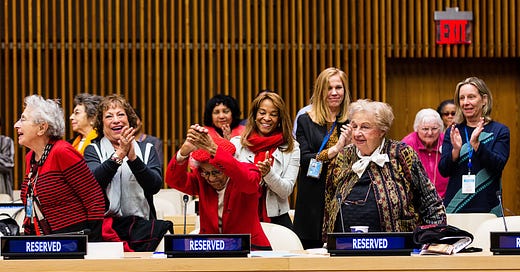



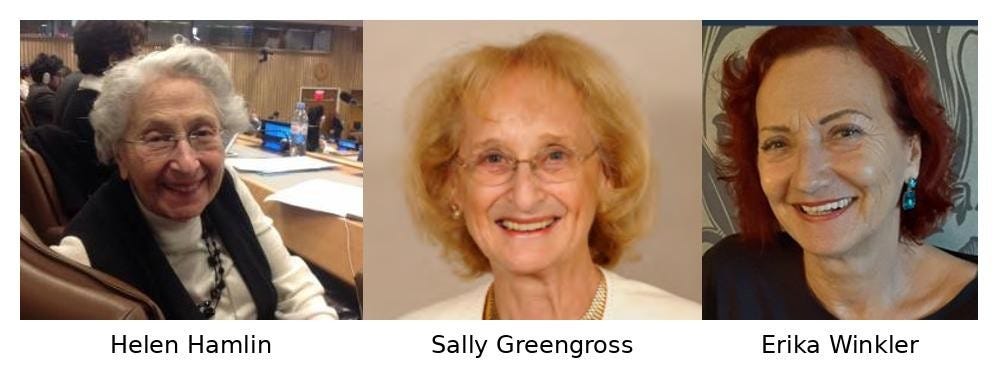
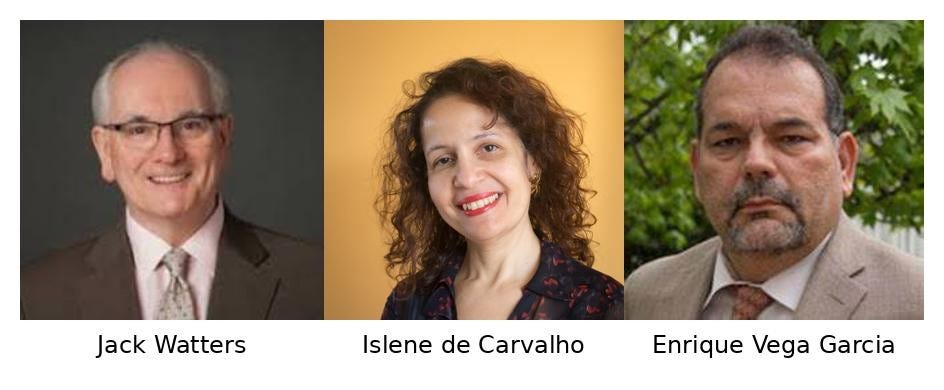
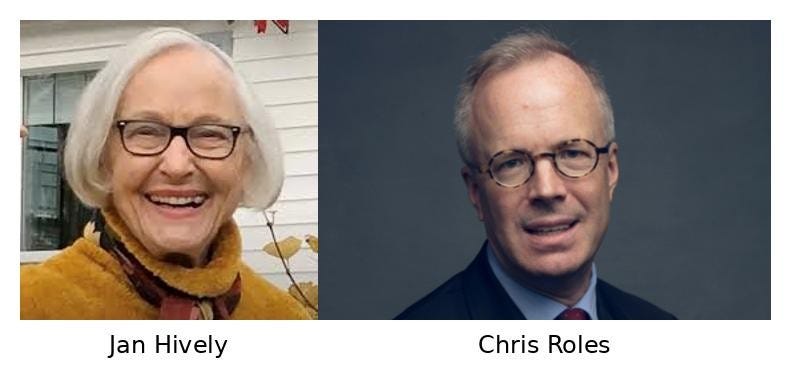

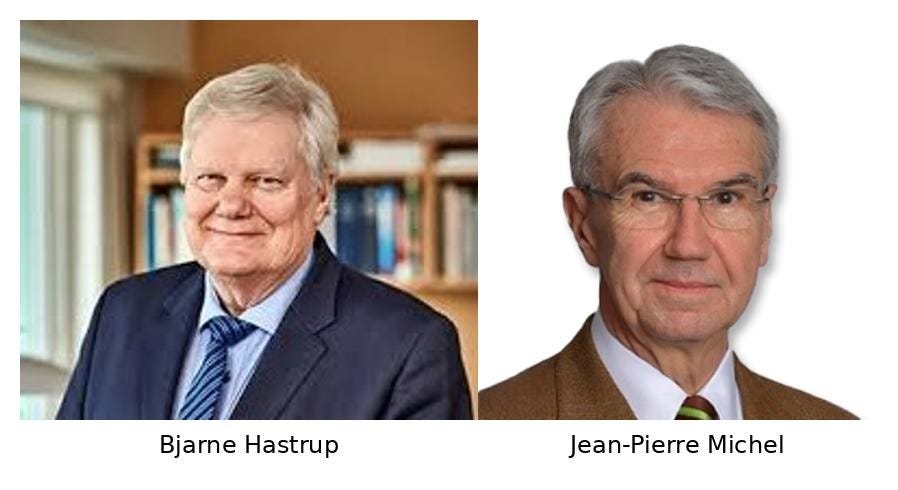
With thanks for your thoughts, and I look forward to further conversations
Great post. I had the privilege of learning and working with many of them. For example, for me Martha Pelaez Phd is continues to be my mentor and "academic mum."